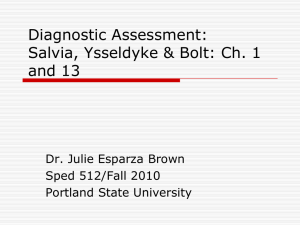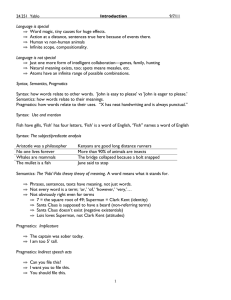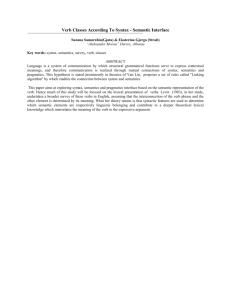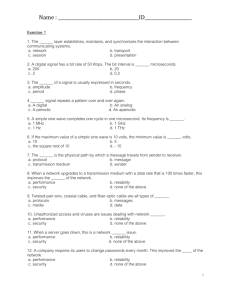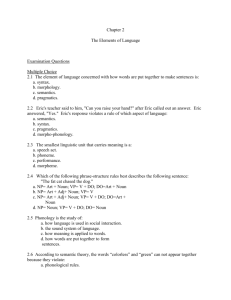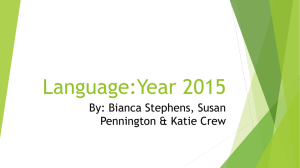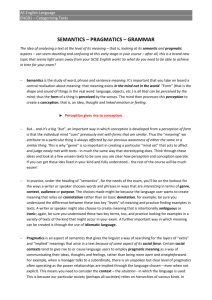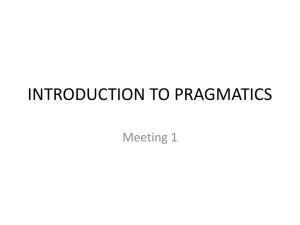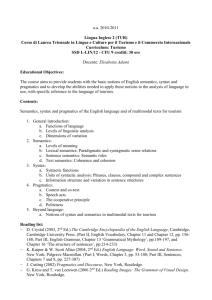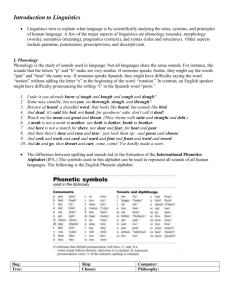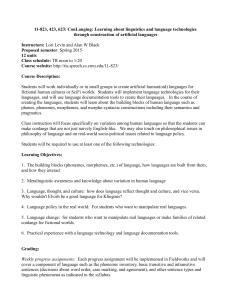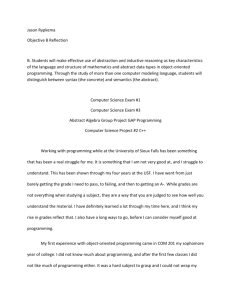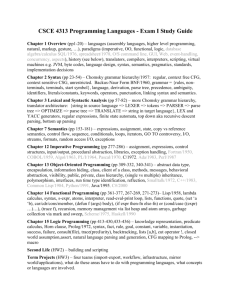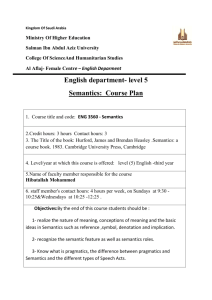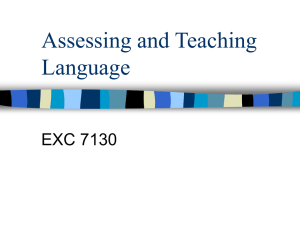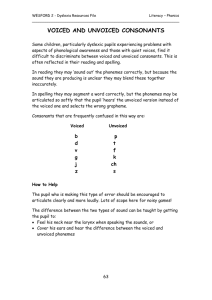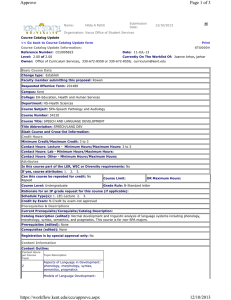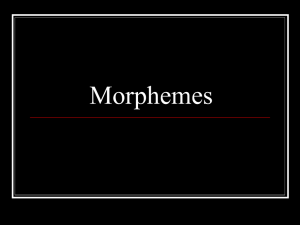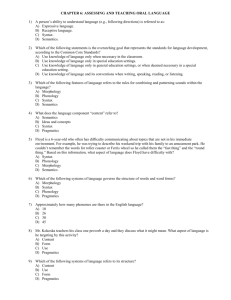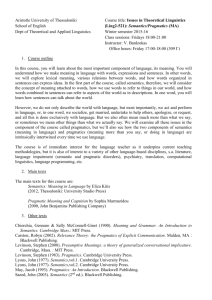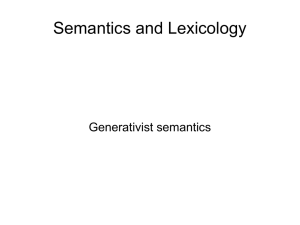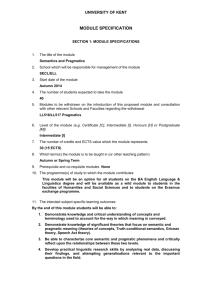Linguistics 101 Review
advertisement
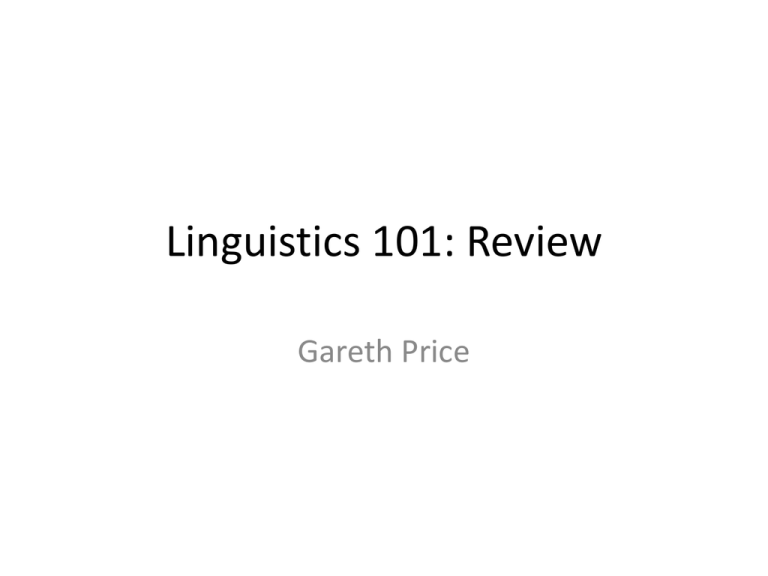
Linguistics 101: Review Gareth Price New Site for Powerpoints • www.duke.edu/~gop/teaching.html Final Paper • Friday, April 30 2010 • E-mailed submissions by midnight … • AND bring me a hard copy on Monday to the exam. Exam • Monday May 3rd • 10.30am – 12pm • Carr 136 Exam Content • • • • • • • • • • Linguistically analyse three data sets Aphasia / language impairment Child language acquisition Conversation Use frameworks Phonological Morphological Syntax / grammar Semantics Pragmatics Phonology • Use the IPA chart to adequately describe phonological features • So … the ‘b’ sound • … voiced bilabial stop /b/ • Look for REGULARITIES as well as IRREGULARITIES • E.g. where voiced interdental fricative /ð/ becomes voiced alveolar stop /d/ • unvoiced interdental fricative /θ/ • becomes unvoiced alveolar stop /t/ • Try not to see these as ‘errors’ – linguistic description, not value judgement Morphology • Be clear on what morphemes are • Be able to identify features of inflectional vs. derivational morphology • And be able to identify what the morphemes do • Plural marking –s • Third person verb marking –s • = both –s, but different functions/morphemes • Again … REGULARITIES and IRREGULARITIES Syntax and Grammar • • • • • • • Be careful to distinguish what is syntactically incorrect The the cat on sat mat From what is ‘grammatically’ non-standard He ain’t got none You won’t have to draw trees in the exam But do look for NPs and VPs in the data E.g. in the aphasiac patient we looked at, the possessive determiner ‘my’ was 3 out 4 times attached to a adjective, but was missing a noun. • Again, REGULARITIES and IRREGULARITIES Semantics • • • • Semantics … red sock in the washing machine! It goes all the way through! So … always pay attention to meaning and meaning-making • Whether things ‘make sense’ or are somehow ambiguous Pragmatics • • • • • • Grice’s Maxims Pauses Latching on / Overlapping Adjacency pairs ‘Known answer’ questions Make sure you study the data carefully – there is ALWAYS something to be said that is linguistically interesting about ANY conversation (no matter how banal) General Points • Be bold! • Make an attempt to use technical terms correctly, rather than avoiding them in case they are incorrect • Say what you see … • … even if it sounds ‘obvious’ • … and especially if you think it sounds ‘outlandish’ • Your interpretation counts! Exam Revision • • • • • • • • • • • • • • Overview: 1.0 – 1.5 Phonetics / Phonology: 2.1 – 2.3, 3.1 – 3.3 Morphology 4.0 – 4.2, 4.4 – 4.5 Syntax 5.0 – 5.3 * Language Files doesn’t do X-Bar Syntax Semantics 6.0 – 6.5 Pragmatics 7.0 – 7.2 AND … Chapter 8 (Language Acquisition) and Chapter 9 (Language Storage and Processing) FIN
